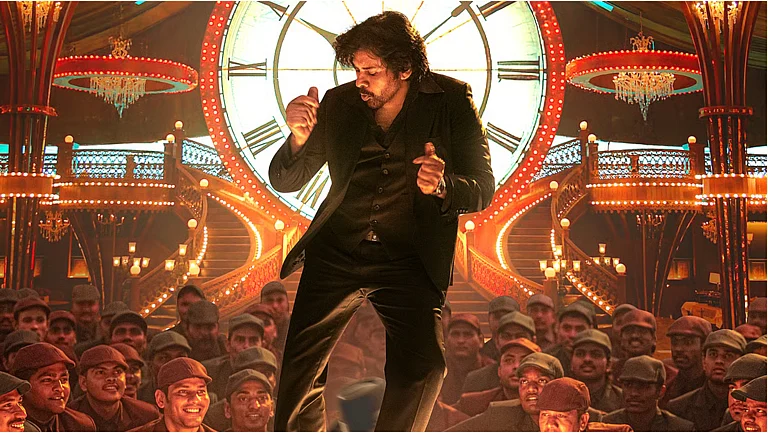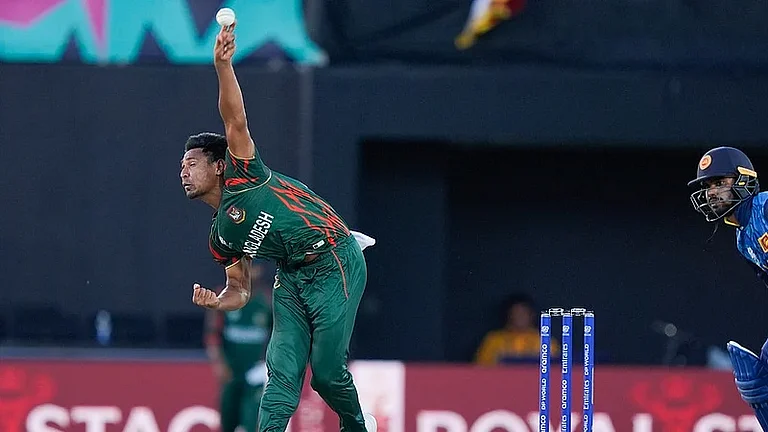India has voiced its dissatisfaction over the lack of momentum in reforming the United Nations Security Council (UNSC) due to the resistance from nations that oppose expanding the Council's permanent membership. These nations are usually concerned with the prospects of their neighbors getting elected, said the Indian Ambassador to the United Nations, Parvathaneni Harish.
“The Security Council structure, as it stands today, is a reflection of 1945. It does not reflect today's realities,” Harish said at the Columbia University School of International and Public Affairs (SIPA). His remarks were part of a conversation on the theme, Responding to Key Global Challenges: The India Way.
The event, attended by students, faculty, and policy experts, was co-sponsored by the MPA program in Global Leadership and the International Organization and UN Studies program (IO/UNS). Harish summarised some of the ways that India has engaged with major global challenges of multilateralism, terrorism, demographics, IT, climate change, democracy, healthcare, and vaccines.
Harish noted the vital role played by the United Nations in addressing global challenges, particularly in the humanitarian and development sectors. From public health to children’s welfare and labor rights, the UN’s specialized institutions have positively impacted millions of lives. However, Harish highlighted that for the average person, the perception of the UN often hinges on its inability to prevent conflicts, such as those in Ukraine and the Middle East. “For the common man on the street, their perception, the lenses through which they view the UN, is neither the humanitarian dimension nor the development dimension or the public health dimension. They only look at the inability of the UN to stop conflicts in areas like Ukraine and the Middle East. That is the view they have and that is probably the only yardstick by which they are assessing the efficiency of the UN,” he said during a panel discussion after his keynote address.
Harish emphasized the growing consensus that the UNSC needs reform to address modern challenges effectively. “Yes, it needs reforms. It needs expansion,” he said. However, he underscored the significant resistance to change from nations that prefer the status quo. Countries that are already permanent members are reluctant to relinquish their privileges, including the veto power, while others vehemently oppose expanding the permanent membership category. Harish explained, “Those who feel that their neighbors may have a chance to become a member would oppose expansion in the permanent category at all costs. This is the way nations behave, very much like people, in terms of motivations.”
India faces specific opposition from Pakistan, which is part of the 'Uniting for Consensus' group. This coalition, which includes countries like Italy and South Korea, resists permanent seats for India and other G4 nations—Brazil, Germany, and Japan. Of the five permanent UNSC members, France, Russia, the UK, and the US have expressed strong support for India’s bid for permanent membership. However, China has taken a more cautious stance. While acknowledging the importance of reform, China has criticized efforts that prioritize “small-circle interests” and has expressed reservations about the inclusion of certain countries, including India and Japan.
Harish described the reform process as both “very difficult” and “complex.” He noted that despite 15-16 years of discussions within the Inter-Governmental Negotiation (IGN) process, significant progress has not been made. “Yes, we are unsatisfied with the pace of progress in the last 15-16 years and urging the co-chairs of the Inter-Governmental Negotiation process to decisively move forward on this,” Harish said. He acknowledged the resistance from status quo supporters but emphasized the importance of persistence. “Is it going to be easy and will it happen tomorrow? Probably not. What should we do? We should keep at it because eventually, things will not remain the same. Nothing remains the same. Change is a natural order of things. It will happen, if not today, tomorrow. If not tomorrow, the day after.”
Harish stressed that many of today’s multilateral institutions, including the UNSC, were designed in the aftermath of World War II and are no longer equipped to address contemporary challenges. “The institutions of multilateralism that we have today are a product of the post-Second World War. The reality of 1945 is long gone, the institutions remain. They are not fit for purpose for dealing with today's challenges and opportunities,” he said. This applies not only to the UNSC but also to international financial institutions and trade organizations. Harish argued that all these bodies need to be reformed to better reflect the realities of today’s world.
Despite the challenges, India remains committed to advocating for a multilateral system that works for all. Harish highlighted the importance of multilateralism in addressing global challenges and fostering cooperation among nations. “We are engaged with this process because we need a multilateral system that works and is fit for purpose to deal with today's challenges, problems, and also opportunities,” he said.
During the talk, Harish explained the policy of “India Way,” which is a proactive and cooperative strategy of international relations. Using cricket terminology, he described this approach as “playing on the front foot” and laid out how India had aimed to build challenging partnerships, forge new relations, and strengthen ties with long-standing allies. Another aspect of the India Way is the achievement of consensus and inclusive decision-making. Harish emphasized the importance of engaging with old friends and new partners to develop new solutions for global challenges.
In the last, Harish concluded by reiterating India’s vision for a multipolar world where power is distributed among various regions rather than concentrated in a few nations. "We are a multipolar world, and we in Asia are clear that a multipolar Asia in a multipolar world is the way ahead," he stated. India is a strong advocate of the need to reform the UNSC and other international organizations because it sees collaboration and inclusion as its strength."India is a bridge between the developed and the developing world, between the established and the emerging, a friend of the world that believes in participatory institution building without confrontation." Harish said.
The path to UNSC reform is undoubtedly challenging, however, the Indian side stays persistent. As Harish mentioned, change is inevitable even if it takes time. In its bid to change the structure of the UNSC, India is working to ensure that the global governance system is equipped to address the challenges and opportunities of the 21st century.



























